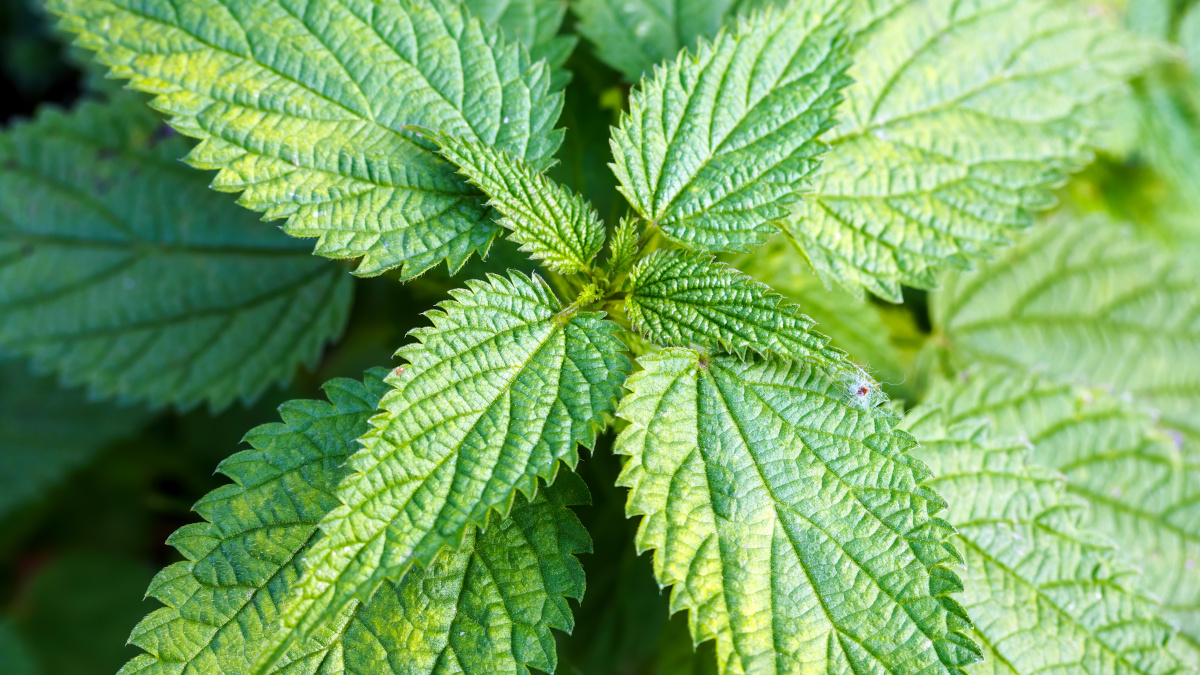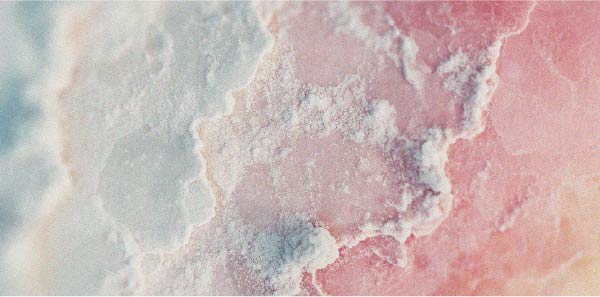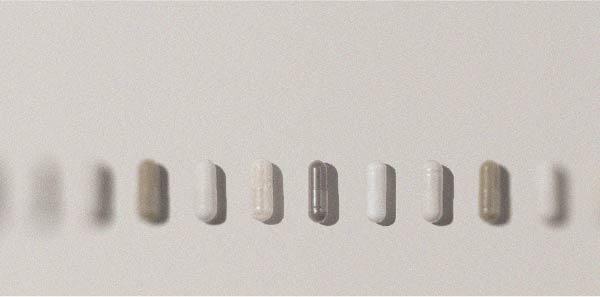Health: the impressive benefits of nettle supplements
Nettle is a plant that grows abundantly along country lanes. Your bare legs may not appreciate being stung by it, but nettle is actually full of health virtues when you know how to use it .... Discover its benefits now.

What exactly is nettle?
Nettle Urtica dioica, also known as stinging nettle, or common nettle, is a hairy-leaved plant from the Urticaceae family. Between 50cm and 1m in length, it is very common in Europe and is used in various forms.
While gardeners often make a nettle slurry to apply as an insect repellent, many people are unaware that it is also used for its medicinal properties.
A plant known by everyone
At some point in our lives, we’ve all fallen foul of nettles, and the memories are painful: burning sensations, itching, blisters. Our grandmas would apply vinegar to the affected area to soothe the pain but the unpleasant feeling would still last for hours.
Nettle’s infamous stinging hairs are actually cone-like outgrowths called trichomes, the points of which break on contact with the skin, releasing formic acid and histamine. To pick nettle without being stung, you simply need to pinch the stem at its base and pull upwards. This way, the trichomes cannot get stuck in the skin.
Since the dawn of time, nettle has been used by herbalists and phytotherapists who have recognized its benefits for health.
But what does it actually contain?
Nettle is full of good things:
- vitamins B, E, C and provitamin A;
- complete proteins (8 grams per 100 grams in fresh leaves);
- iron (7.8 grams per 100 grams) ;
- natural pigments called flavonoids;
- and minerals (potassium, calcium, zinc, magnesium, manganese, silica) (1).
Adding nettle to your diet increases your intake of these elements, all of which help the body function properly, without adding calories. Indeed, this plant has only 82 kcal per 100 grams of fresh leaves.
The benefits of nettle: immunity, respiration, prostate ...
Nettle has many excellent health benefits. It supports:
- the immune system;
- the respiratory system;
- the cardiac system;
- healthy skin, by supporting sebum secretion in particular;
- the osteo-articular system (bones and joints);
- and reinvigoration of the body (2-7).
Nettle also contains substances that promote diuretic function (increased urine production), which is excellent for supporting urine flow in men suffering from an enlarged prostate (8).
How can you incorporate nettle into your diet?
Every part of the plant can be consumed: the leaves, stems and roots. But you still need to know how to prepare them to enjoy their benefits. Here are four different ways in which to consume nettle in order to benefit from its properties:
- in the form of a fresh juice: wash the leaves and stem of the plant and place in a juicer. Drink 5-10ml of the extracted juice three times a day. The juice only keeps for a few hours;
- in the form of a herbal tea made from dried leaves: leave 2-5 grams of nettle to infuse in 150ml of simmering water for 10-15 minutes. Drink a maximum of 500ml of this tea a day;
- as a decoction of dried roots: add 2 grams of dried roots to 200ml of cold water. Bring to the boil, allow to bubble for 1 minute, then remove from the heat. Let it rest for 10 minutes before straining the brew and drinking the liquid;
- as a dietary supplementin the form of capsules (such as the nettle extract in our formulation Inflarelief).
Nettle supplements
Dietary supplements containing nettle are useful for a number of reasons:
- not everyone is able to regularly pick fresh nettles;
- some people are worried about getting stung and so prefer not to prepare nettles themselves;
- and others dislike the taste of nettles, whether in a tea or soup;
- and most importantly, good quality supplements offer a high content of active ingredients.
You can obtain the benefits of nettle by taking a selected synergistic formulation rich in plant extracts (such as the supplement Inflarelief, which combines extracts of nettle, cat’s claw for immunity, ginger for vitality, rosemary, bromelain, etc.)
As mentioned, nettle is also a valuable aid for men suffering from prostate problems. If that includes you (it normally develops after the age of 40), a nettle supplement such as Nettle Root Extract will help to facilitate micturition meaning you have to get up less often in the night to urinate.
For prostate problems, we’d also recommend saw palmetto which also supports healthy urinary function (9), and African plum tree or pygeum, the bark of which is rich in beta-sitosterol and supports the health of the prostate, bladder and lower urinary tract (10). Common nettle, saw palmetto and African plum are actually combined, along with other compounds, in specific formulations (such as ProstaNatural Formula).
References
- Rutto LK, Xu Y, Ramirez E, Brandt M. Mineral Properties and Dietary Value of Raw and Processed Stinging Nettle (Urtica dioica L.). Int J Food Sci. 2013;2013:857120. doi:10.1155/2013/857120
- Dhouibi R, Affes H, Ben Salem M, Hammami S, Sahnoun Z, Zeghal KM, Ksouda K. Screening of pharmacological uses of Urtica dioica and others benefits. Prog Biophys Mol Biol. 2020 Jan;150:67-77. doi: 10.1016/j.pbiomolbio.2019.05.008. Epub 2019 Jun 1. PMID: 31163183.
- Kumaki Y, Wandersee MK, Smith AJ, Zhou Y, Simmons G, Nelson NM, Bailey KW, Vest ZG, Li JK, Chan PK, Smee DF, Barnard DL. Inhibition of severe acute respiratory syndrome coronavirus replication in a lethal SARS-CoV BALB/c mouse model by stinging nettle lectin, Urtica dioica agglutinin. Antiviral Res. 2011 Apr;90(1):22-32. doi: 10.1016/j.antiviral.2011.02.003. Epub 2011 Feb 19. PMID: 21338626; PMCID: PMC3085190.
- Kregiel D, Pawlikowska E, Antolak H. Urtica spp.: Ordinary Plants with Extraordinary Properties. Molecules. 2018;23(7):1664. Published 2018 Jul 9. doi:10.3390/molecules23071664
- https://open.efsa.europa.eu/questions/EFSA-Q-2010-00451
- https://open.efsa.europa.eu/questions/EFSA-Q-2008-3499
- https://open.efsa.europa.eu/questions/EFSA-Q-2008-2885
- Ghorbanibirgani A, Khalili A, Zamani L. The efficacy of stinging nettle (urtica dioica) in patients with benign prostatic hyperplasia: a randomized double-blind study in 100 patients. Iran Red Crescent Med J. 2013;15(1):9-10. doi:10.5812/ircmj.2386
- Kwon Y. Use of saw palmetto (Serenoa repens) extract for benign prostatic hyperplasia. Food Sci Biotechnol. 2019;28(6):1599-1606. Published 2019 Apr 17. doi:10.1007/s10068-019-00605-9
- Ishani A, MacDonald R, Nelson D, Rutks I, Wilt TJ. Pygeum africanum for the treatment of patients with benign prostatic hyperplasia: a systematic review and quantitative meta-analysis. Am J Med. 2000 Dec 1;109(8):654-64. doi: 10.1016/s0002-9343(00)00604-5. PMID: 11099686.
Keywords
2 Days
great products and prices
great products and prices
Marie
7 Days
Easy to navigate site
Easy to navigate site, had what I was searching for, good price. easy order-check out
James Tucker
14 Days
My skin is clearing up nicely!
Pretty good for my skin so far.
Christian
16 Days
The new packaging is excellent
The new packaging is excellent - finally! No more squashed boxes and torn envelopes.
GORAN
17 Days
Great Product
Great Product
Larry Garrett
21 Days
Quick shipping
Quick shipping; good price. No issues!
Mary McCarty
22 Days
Thr product is very good and is helping…
Thr product is very good and is helping me on my health. Then is always on time
LUGO Luz
25 Days
Buying was fine
Buying was fine. I had problems with the website not recognizing my login info, and had to call to get it fixed. Other than that, everything was good.
David S. Clark
25 Days
Your super maca and super ginseng are…phenomenal
Your super maca and super ginseng are phenomenal supplements that compliment each other when taking them together. Fantastic feeling of well-being and lots of mid day energy without the crash.
Keith Mason
28 Days
I have had amazing results with every…
I have had amazing results with every supplement I've purchased. I am extremely satisfied with this company
kirstin Torres
28 Days
Fine products
Fine products . They are on the leading edge of online supplements. The only issue -so far-is they sometime run out of subscription items.
Jason Argos
31 Days
The ordering process is very user…
The ordering process is very user friendly and the products always come in a timely manner.
CARTER Rhonda
32 Days
The price for Dr
The price for Dr. Pero's AC-11 is reasonable and in line with his views. (my former colleague). Keep it pure.
CAMPBELL Clayton
35 Days
Right on every time.
Right on every time.
Arthur Nicholas
37 Days
They are cheaper than everyone else and…
They are cheaper than everyone else and the shipping was fast. Great company.
Patricia Adams




